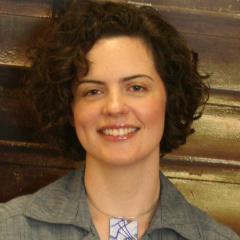
A new approach to leading the Passover Seder
Passover is the holiday when lay people become leaders. The entire ritual of the festival (that most people observe) is conducted in the privacy of their homes! The seder is a time for cooking, gathering, singing, and engaging with our tradition. A lively exchange between family and friends is the hallmark of a meaningful observance of the Festival of Passover. To be the leader charged with asking interesting questions and guiding a multi-generational discussion is both empowering and challenging, and everyone can take inspiration from creative suggestions for the Maggid, the telling of the story, that will spark conversation.
Why not use multi-media to enliven the Haggadah and tell the story in a way that allows all who attend to hear it anew? Bringing music or video to the table is as easy as setting up a computer, projector, or speakers that plug into your iPod. Seder leaders know their audiences (often their own family or closest friends). They can choose musical selections that they know will interest the crowd.
Perhaps a gathering of friends and family are interested in the history of how the story of the redemption from Egypt was taught post-World War II in socialist circles, using Yiddish folk song to explore the narrative but strip it of religious themes. Following is a link to a description of the Yiddish folk song Piramidn, claiming that if it were not for Moses, the Jews might still be slaves in Egypt.
http://www.milkenarchive.org/works/lyrics/528#/works/view/528/full
So many questions frame a discussion of this piece. Who was the hero of the Passover story? Why does the traditional Haggadah only mention God and not Moses? Can you tell the story sufficiently without Moses’ role in the narrative? Why would the socialists of the post-WWII era tell the story in this way, and why was Yiddish the language of their cause? What is different today about how we talk about human heroes and divine intervention?
Or perhaps the exploration of the African American experience in this country and how that has both influenced how we tell the Exodus story today and how pop music developed in the 20th century is more up a group’s alley. In this African American spiritual Pharoah’s Army Got Drowned, the lyrics use the triumph of the Israelites against their foe as a sign that at any time, hope is warranted and joy will return.
http://www.authentichistory.com/1600-1859/3-spirituals/Pharoahs_Army_Got_Drowned-unknown_artist.html
Is that the lesson of the Exodus we want to teach? How do we talk about the army that “got drowned”? How did this experience become so universal and eternal? And what does it say about the evolution of music in this country that the spiritual journeyed to become this?:
http://www.youtube.com/watch?v=tebjshm7f_I
The Four Questions and The Four Children in the Haggadah emphasize that we must ask questions. The questions make the seder experience come alive. Each year seder leaders have the opportunity again to provide the spark for discussion. This year, may music allow all of us to tell the story in a creative way and see the Exodus story and its legacy anew.

